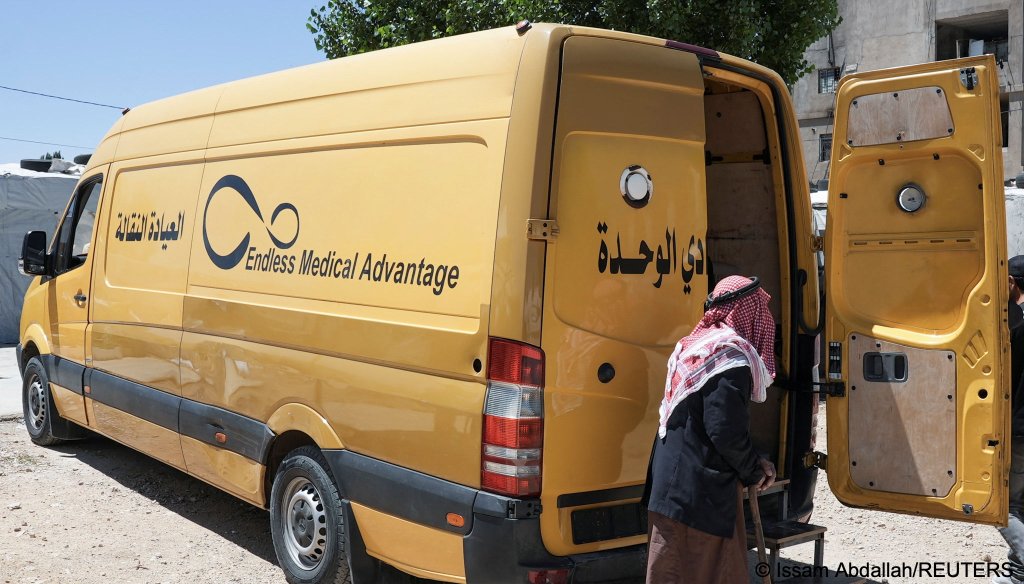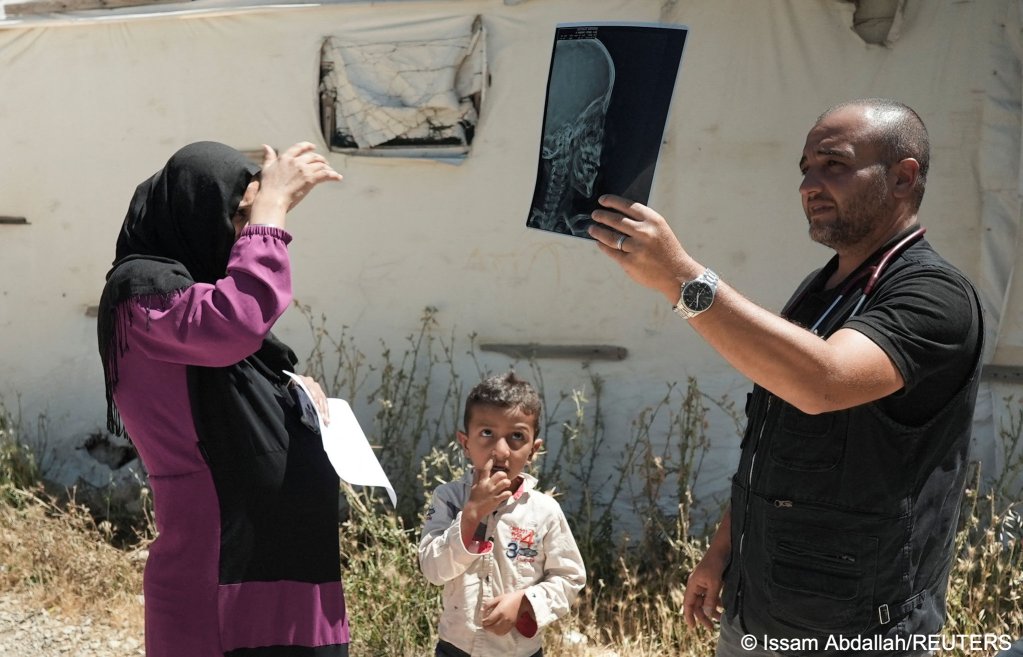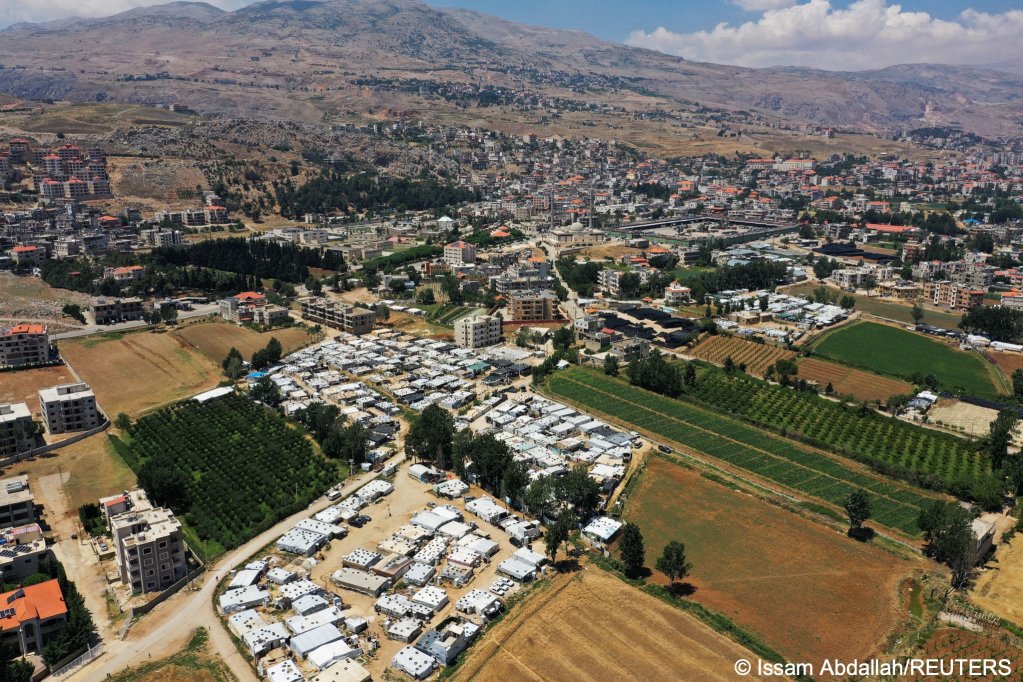A Syrian doctor, who fled war in his homeland, has set up a mobile health clinic in Lebanon's Bekaa valley, offering free services to refugees. He is hoping to expand his services.
Syrian doctor Feras Alghadban dedicates his days to treating refugees in Lebanon using his mobile health clinic, the "Endless Medical Advantage," Reuters reported. The mobile clinic currently covers around 40 migrant camps in the region, but Alghadban has big dreams to expand his services.
Alghadban trained as a family physician in Syria, but fled to neighboring Lebanon in 2017 due to the war.
"When I came to Lebanon, I had no money, I did not have a job, I did not have any legal papers. I started selling vegetables in markets," he told Reuters. Alghadban was eventually able to fund the rest of his family's trip to Lebanon five months later.
The lack of health services in Lebanon's informal refugee camps prompted Alghadban to organize his legal papers, and launch his own mobile health clinic in 2018.
"Most of our patients are Syrian refugee children and elderly people, as well as Lebanese people from the host community," he said. "In general, the number of Lebanese people [that we treat] has increased in the recent period, especially in the last year and a half due to the economic crisis that the country is going through," Alghadban explained.
'Nothing compared to what we witnessed in Syria'
The 37-year-old spends his days answering calls, driving through the Bekaa Valley to offer his medical help to those in need at migrant camps.

"My time is taken up by all the phone calls, diagnosis over the phone – sometimes emergencies during the night," he said, adding that treatments vary and are often undertaken in the shade of makeshift tents with limited resources.
"These light wounds and burns we see here are considered nothing compared to what we witnessed in Syria. It is considered very simple and very easy for us Syrian doctors to treat," he said.
In war-torn Syria, Alghadban treated complex conditions and carried out intricate procedures, including remedying broken jaws, skull fractures and cerebral hemorrhage.
Alghadban said the biggest challenge is correctly diagnosing diseases as he cannot provide medical tests and x-rays for his patients.

"We have to give medication, wait, see the results, follow up on each case and wait for results. Based on them, we either change the treatment or continue with the same treatment."
Alghadban wants to expand his project throughout Bekaa and beyond, and also help refugees gain access to safe sanitation and drinking water.

"I wish for EMA (Endless Medical Advantage) to get bigger, to be able to make more clinics so we can cover the existing need for it."
For now, the father of five said he's available all hours of the day.
"I sometimes also feel that my whole family is volunteering with me," he said. "I can't turn off my phone, I feel guilty if I turned my mobile off and an emergency happens."
With Reuters
